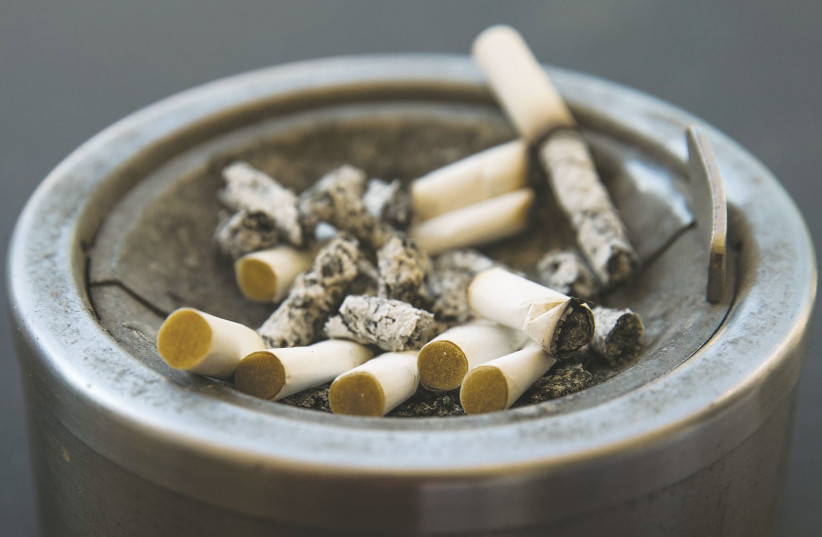Second-hand smoke – when non-smokers are exposed to tobacco toxins – is dangerous not only to those in the vicinity but even to young children of people exposed to tobacco smoke.
A new study conducted by researchers at the University of Melbourne, published in the European Respiratory Journal shows that children are more likely to develop asthma if their father was exposed to second-hand smoke when he was a child.
The study, led by Prof. Shyamali Dharmage and conducted with Jiacheng Liu and Dr. Dinh Bui, highlights how smoking can damage not only the health of smokers and their children but also that of their grandchildren. Having begun in 1968 as one of the world’s largest and longest-running respiratory studies, it was based on data from the Tasmanian Longitudinal Health Study (TAHS).
For this study, entitled “Pre-pubertal smoke exposure of fathers and increased risk of offspring asthma: a possible trans-generational effect,” the researchers looked at 1,689 children who grew up in Tasmania – an island state of Australia located 240 km. south of the mainland – their fathers and their paternal grandparents.
They compared data on whether the children had developed asthma by the age of seven years with data on whether the fathers grew up with parents who smoked when they were under the age of 15. They also included data on whether the fathers were current or former smokers.
What did the researchers discover?
“Our findings show how the damage caused by smoking can have an impact not only on smokers, but also their children and grandchildren.”
Dr. Dinh Bui
While there is evidence that mothers’ intrauterine exposure to second-hand smoke is associated with asthma in the offspring, there is also increasing concern that fathers who start smoking before completing puberty may elevate the risk of asthma in their offspring.
“We found that the risk of non-allergic asthma in children increases by 59% if their fathers were exposed to second-hand smoke in childhood, compared to children whose fathers were not exposed,” said Liu. “The risk was even higher, at 72%, if the fathers were exposed to second-hand smoke and went on to smoke themselves.”
“Our findings show how the damage caused by smoking can have an impact not only on smokers, but also their children and grandchildren,” added Bui. “For men who were exposed to second-hand smoke as children, our study suggests that they can still lower the risk they pass on to their own children, if they avoid smoking.”
“We can’t be certain of how this damage is passed on through generations, but we think it may be to do with epigenetic changes. This is where factors in our environment, such as tobacco smoke, interact with our genes to modify their expression,” commented Dharmage. “These changes can be inherited, but they may be partially reversible for each generation. It’s possible that tobacco smoke is creating epigenetic changes in the cells that will go on to produce sperm when boys grow up. These changes can then be passed on to their children.”
How will the research continue?
The researchers will now investigate if the increased risk of asthma persists into adult life and whether fathers who were exposed to second-hand smoke as children pass on any increase in allergies or other lung diseases to their children.
Prof. Jonathan Grigg, the chairman of the European Respiratory Society’s tobacco control committee who was not involved in the research, observed: “Asthma is a common, long-term lung condition that affects children and adults and usually requires ongoing treatment.
“We already know that smoking and being exposed to second-hand smoke can increase asthma risk. This study adds to growing evidence that the damage caused by tobacco smoke can be passed on to children and even to grandchildren. We need to protect children from this damage with measures to discourage smoking and support to help smokers quit.”

